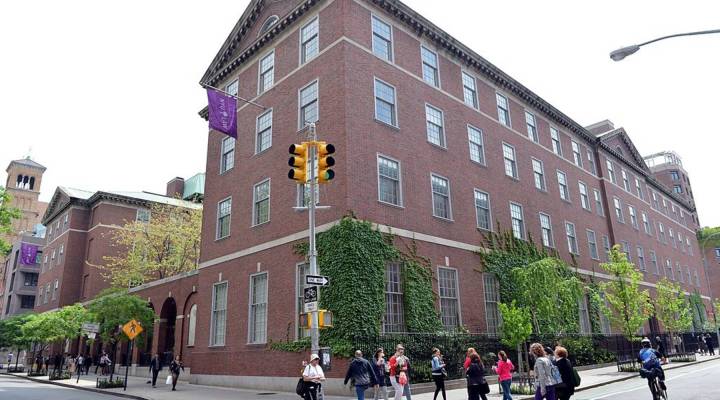
Trump’s travel ban worries international students

A few weeks ago, Abhishek Goyal was feeling pretty good about being an international student. Twenty-two years old, Goyal is from India and getting a master’s degree in construction management at New York University. Back home, he said, his career plans would be decided for him by his parents or society.
“Everybody wants to you to be a scientist or a doctor or an engineer, like that kind of thing. If people want to pursue something [different], they’ll be too afraid,” he said. “Over here, everybody wants to do anything they can.”
Growing up, Goyal had two older sisters, one of whom studied in New York. Listening to her stories of life in the U.S. inspired him to make the trip himself.
“I wanted to step out of my comfort zone and experience that kind of life,” he said. Now, as a student himself in New York City, he works part time as a photographer and also holds down a job at the student bookstore. “First of all, studies. Second of all, party. And third of all, living independently,” Goyal said of his top three reasons for studying abroad.
“Diversified, open minded and colorful,” is how Goyal described America’s brand. “I’m talking about thought process kind of way.”

Abhishek Goyal, before Trump’s executive order temporarily banning travel from seven Muslim-majority countries.
Foreign students like Goyal contribute $36 billion a year to the U.S. economy. The Commerce Department ranks higher education as one of the top 10 largest service exports. Often, international students don’t qualify for financial aid so they pay full tuition. And just like their American counterparts, they also buy books, clothes and food. But the Trump administration has ushered in a wave of anti-immigrant sentiment and an executive order temporarily banning some from the country. Goyal’s positive words about America’s brand overseas came before Trump’s order.
After hearing the news, he said he is “still optimistic about my future, but I’m little scared right now.”
We’re sitting on the carpeted floor of a student center. Behind us is a large black wall, and students’ hopes for the semester are scrawled there in pink and green chalk. There’s what you might expect — “get on the dean’s list,” “be my best self,” and in big white letters, “support our president.” That chalk is smudged. It looks like someone else has tried to rub it out.

The chalkboard at a student center at NYU.
Goyal said Trump’s move to ban refugees wasn’t a good one.
“It’s not a company he’s running. It’s a country. And a country has to work in alliance with everybody else,” he said.
At schools like Brandeis, the New School and the University of Tulsa, as many as 20 to 30 percent of students are from overseas. Administrators there said it’s a tough time to gauge reaction from prospective students. The application deadline has passed, and deposits aren’t due for months.
Dr. Alan Goodman, CEO of the Institute of International Education, a nonprofit that researches international students in the U.S., said before Trump’s order, the most common concern he heard from students and their families was about guns: “Does everybody in America carry a gun? Will my son or daughter be safe on campus if guns are allowed to be carried?”

Some messages on the board show the stress some students feel about politics after Trump’s executive order.

A chalkboard at a student center at NYU.
Goodman said it’s too soon to tell if America’s education brand is still going strong overseas. But he said the United States needs its foreign students — and for a lot more than their tuition dollars.
According to the State Department, less than half of Americans have passports.
About 10 percent of Americans in higher education study abroad, according to the Institute of International Education, Goodman said.
“So we’re not engaging with the world the way you think a superpower ought to,” he said. “How are our kids going to learn to work with Chinese, Indians, Brazilians, Mexicans? They only learn it in the classroom, when they’re sitting next to somebody from a different culture.”
Goodman said he’s grateful the world still dreams the American dream. It’s what he said will continue to make America great.
As for Goyal, he’s telling his friends back home, “Sure, come to the U.S. to study. But don’t count on staying too long.”
Regarding Trump’s executive order, he said, “I knew it was coming, but I didn’t know it was going to come this soon.”
Correction: Abhishek was misspelled in a previous version of this story. The story also included an inaccurate figure for the number of Americans in higher education studying abroad.
There’s a lot happening in the world. Through it all, Marketplace is here for you.
You rely on Marketplace to break down the world’s events and tell you how it affects you in a fact-based, approachable way. We rely on your financial support to keep making that possible.
Your donation today powers the independent journalism that you rely on. For just $5/month, you can help sustain Marketplace so we can keep reporting on the things that matter to you.












